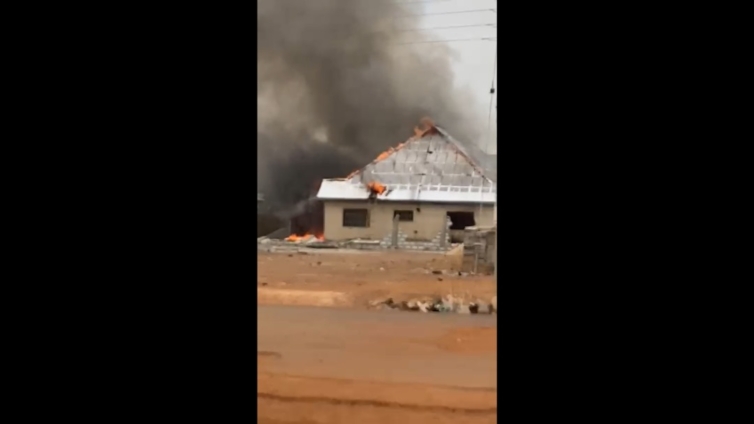Security Lecturer at the Kofi Annan International Peacekeeping Training Centre, Dr Victor Doke, has expressed deep concern about recent attacks on some police personnel in the volatile town of Bawku in the Upper East region.
In an interview on Joy FM's Middaynews on Thursday, April 10, he suggested that the attack was a clear sign of serious mistrust between the people and the security agencies deployed in the conflict-prone area.
This, he explained, is because the people believe that their operations may be skewed to support one faction of the conflict — a development he says is dangerous for peace-building efforts.
“The people who do not trust the security services in Bawku may have observed or concluded that the security forces are engaging in activities they perceive to be supporting one side of the conflict. And this will not be tolerated,” Dr Doke explained.
“The attack on state security is an indication of strong mistrust. And this is very critical. It’s very, very dangerous when the security personnel, who are supposed to protect lives and enforce the law, face such distrust from the very people they are supposed to protect,” Dr Doke added.
This follows the latest surge in violence in Bawku, where renewed clashes on Wednesday afternoon led to the death of one person and the setting ablaze of the private residence of the Bawku Divisional Police Commander, ACP Adamu Seidu, in the Upper East Region.
He noted that while security agencies may be undertaking peacekeeping efforts in the area, the perception of bias — whether real or imagined — is damaging the credibility of the state’s peace mission.
He added that such a situation points to entrenched positions among the youth in Bawku, making the search for lasting peace even more difficult.
“To achieve peace, you need trust among all stakeholders — and this includes the security apparatus. Without that trust, peace efforts are almost impossible,” he emphasised.
Dr Doke suggested that while current security measures like curfews, patrols, and an increased presence of personnel may help manage violence in the short term, sustainable peace will require a different approach.
He proposed that peace-building activities should not solely be left to security agencies, but must involve neutral state institutions like the National Peace Council or civil society organisations.
“For activities aimed at fostering coexistence between the factions, it is critical that these initiatives are led by neutral bodies. If the security agencies take the lead without transparency and trust, the youth may read ill motives into their actions,” he warned.
Dr Doke called for enhanced collaboration between security agencies and all stakeholders, especially the grassroots, to rebuild trust in the Bawku area.
Latest Stories
-
Richard Nyamah demands NPP NEC summon Freddie Blay over support for Mahama’s ‘3rd Term’ bid
2 minutes -
Asenso-Boakye leads Bantama Assembly Members to pay courtesy call on Kumasi Mayor
5 minutes -
Cunha completes ‘dream’ £62.5m Man Utd move
12 minutes -
GRNMA strike: Nurses, government progress in talks
14 minutes -
Nursing and Midwifery unions urge GRNMA to end strike due to progress in conditions of service talks
14 minutes -
FIFA celebrates One Year to Go until the FIFA World Cup 26
14 minutes -
Mahama’s clemency for affected radio stations mere optics – Afenyo-Markin
16 minutes -
GJA 2025 Elections: Full list of qualified candidates announced
35 minutes -
Ghana Horticulture Expo 2025: Agriculture key to Ghana’s development – Mahama
36 minutes -
GAUA-KNUST members receive training in peer-reviewed publishing and grantsmanship
47 minutes -
Private citizen petitions Mahama to sack GIFEC CEO Tanko Rashid-Computer over alleged ‘fake’ PhD
1 hour -
Quarry operators warn of nationwide shutdown over encroachment threats
2 hours -
Ecobank Ghana approves GH₵0.34 dividend for 2024, records GH₵5.4bn revenue
2 hours -
Ga East MCE engages Ga Chiefs to foster developmental unity
2 hours -
Mahama pardons 64 radio stations sanctioned by NCA
2 hours

